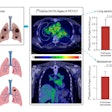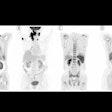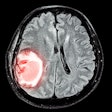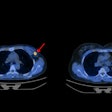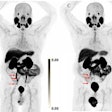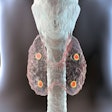Dear Molecular Imaging Insider,
In this edition of the Insider, you get the first look at a profile of a new London-based start-up company called Blue Earth Diagnostics.
The company hopes to commercialize a PET radiotracer called fluciclovine (also known as FACBC), which has shown promise for detecting local or metastatic recurrent prostate cancer -- and which may have advantages over FDG, the workhorse PET radiopharmaceutical for oncology applications.
Read about the progress with FACBC and Blue Earth's future plans in our Insider Exclusive.
In other features, a new market research report from Bio-Tech Systems predicts that the diversification and expansion of PET imaging into cardiology and neurology will propel growth in PET procedure volume and equipment purchasing into the next decade.
And in news from around the world, Japanese researchers have found that several PET/CT parameters -- in particular, a ring-shaped area of FDG uptake -- are reliable predictors of survival for patients with head and neck squamous cell carcinoma.
Closer to home, nuclear medicine residents and soon-to-be graduates are facing a difficult job market. Survey results published in the Journal of the American College of Radiology show that job openings are few and far between, and nuclear medicine residents are concerned about their perceived or actual inability to accurately read radiology images.
We also spoke with two residents about how they found employment, and got their advice for job seekers. Also, one program director discussed efforts to improve the bleak outcome.
As a reminder, the Society of Nuclear Medicine and Molecular Imaging annual meeting is just five weeks away. AuntMinnie.com will file daily reports on noteworthy studies and news from St. Louis beginning Sunday, June 8, through Wednesday, June 11.
Until then, stay in touch with the Molecular Imaging Digital Community on a daily basis for the latest news and research from around the world.









